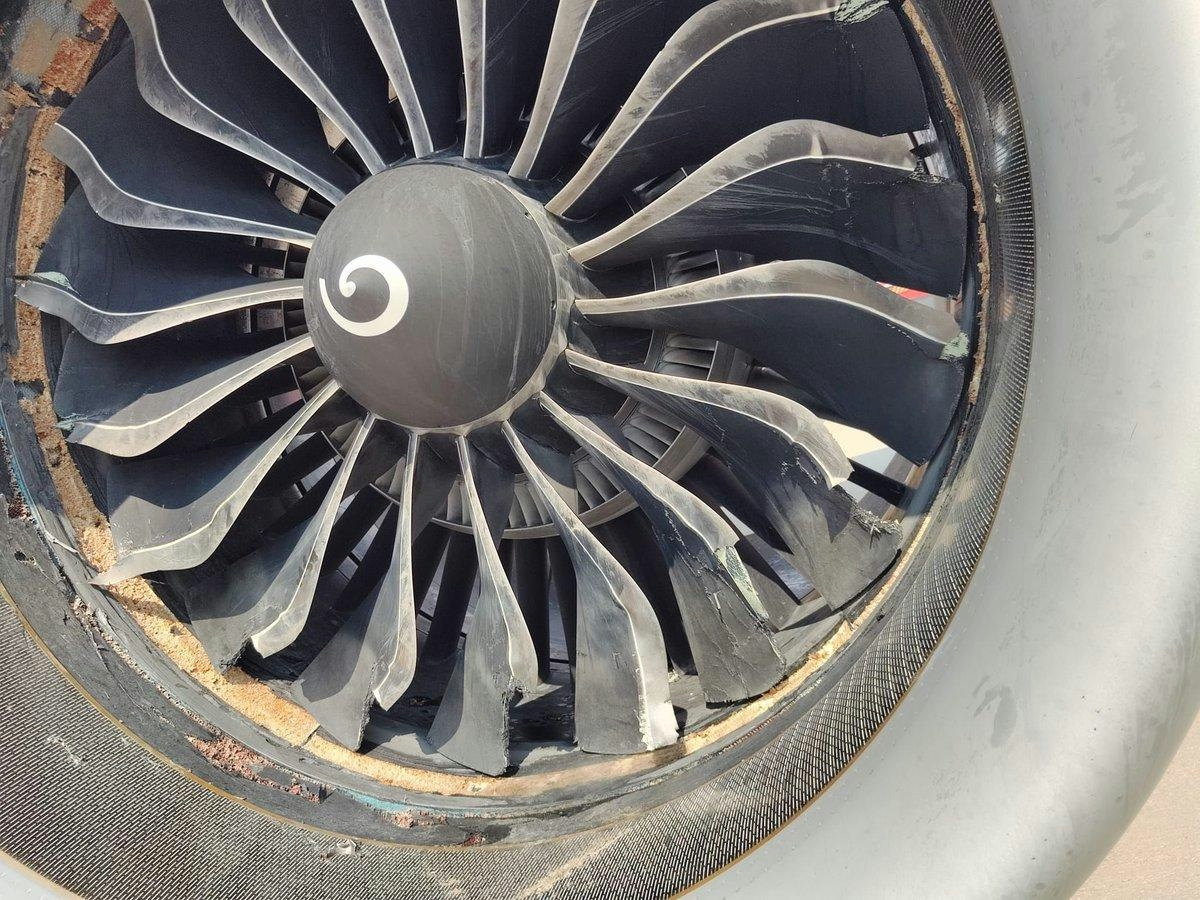AeroGenie — Uw intelligente copiloot.
Trending
Categories
Iberia A321XLR Sustains Engine Damage from Bird Strike, Returns to Madrid

Iberia A321XLR Returns to Madrid Following Bird Strike-Induced Engine Damage
An Iberia Airbus A321XLR, registered EC-OOJ and recently introduced into commercial service, was compelled to return to Madrid-Barajas Airport (MAD) on Sunday, August 3, after sustaining damage from a bird strike shortly after takeoff. Operating flight IB579 to Paris-Orly (ORY), the aircraft experienced visible damage to its nose and left engine, prompting an emergency diversion and safe landing approximately 20 minutes after departure. Fortunately, all passengers and crew remained unharmed.
Details of the Incident
The bird strike occurred during the aircraft’s initial climb phase when a bird collided with the radome—the nose cone housing the weather radar—and was subsequently ingested by the left CFM International LEAP-1A engine. In response, the flight crew followed established safety protocols by halting the climb, declaring an emergency, and returning to Madrid. Photographs shared on social media revealed significant damage to the nose, exposing radar components, alongside multiple damaged fan blades within the left engine.
Bird strikes represent a persistent hazard in aviation, particularly during takeoff and landing when aircraft operate at lower altitudes with increased bird activity. Although commercial aircraft and engines are engineered and certified to withstand such impacts to a degree, any indication of engine damage necessitates an immediate return for thorough technical inspection. Airports implement wildlife control measures to mitigate these risks, yet collisions remain an unavoidable challenge. Jet engines undergo stringent bird ingestion testing to ensure they can be safely shut down without compromising the aircraft’s structural integrity.
Context and Industry Implications
The affected aircraft is among the newest in Iberia’s fleet and one of the first A321XLRs deployed in commercial service globally. Iberia, as the global launch customer for the A321XLR, received its first unit in late 2024. This model is distinguished by its ability to operate long-haul flights with a single-aisle design, offering enhanced efficiency for transatlantic routes.
This incident arrives amid increased scrutiny of the A321XLR program. Operational disruptions and maintenance challenges stemming from such events have raised concerns regarding the aircraft’s reliability and safety. Market reactions have been evident, with carriers such as Wizz Air recently scaling back their A321XLR orders and limiting future operations to the UK market, reflecting a more cautious industry approach. The event also recalls previous incidents, including the Jeju Air crash, where pilots mistakenly shut down the wrong engine following a bird strike, highlighting ongoing challenges in bird strike management and engine reliability.
As investigations proceed, Iberia and other operators of the A321XLR may encounter heightened regulatory oversight and operational adjustments aimed at addressing these issues. The aviation sector continues to navigate the balance between technological innovation and the management of enduring risks such as bird strikes.

Emirates Unveils Cabin Design for New Boeing 777X

Eighteen Years On, the Airbus A380 Remains Central to a $34 Billion Airline

How a boom in luxury airline seats is slowing down jet deliveries

Navitaire Outage Attributed to Planned Maintenance

DigiYatra Debuts Outside Aviation at India AI Impact Summit

Vietnam Orders Strengthen Boeing’s Commercial Outlook

Airbus Signals Uncertainty Over Future A400M Orders

JobsOhio Awards $2 Million Grant to Hartzell Propeller for Innovation Center

Collins Aerospace Tests Sidekick Autonomy Software on YFQ-42A for U.S. Air Force CCA Program

How the Airbus A350-1000 Compares to the Boeing 777
